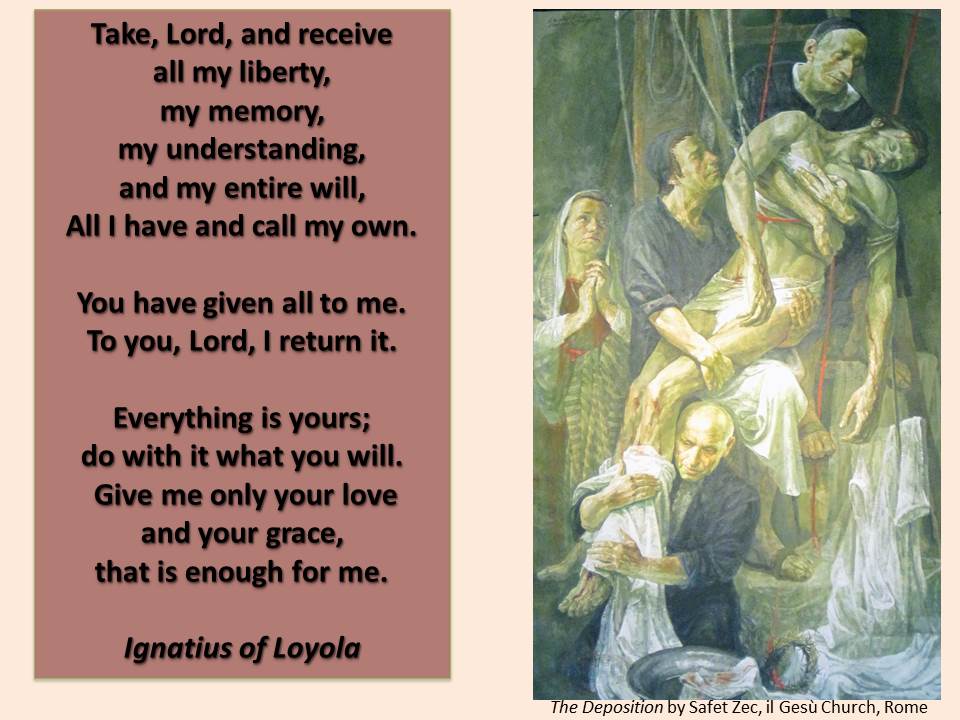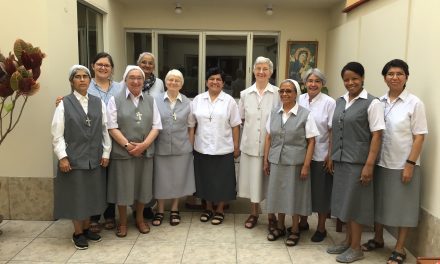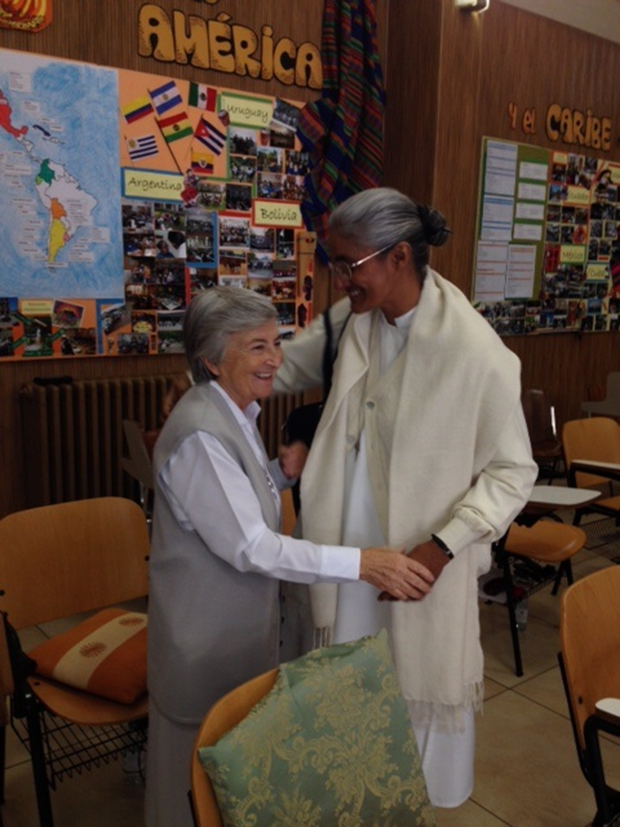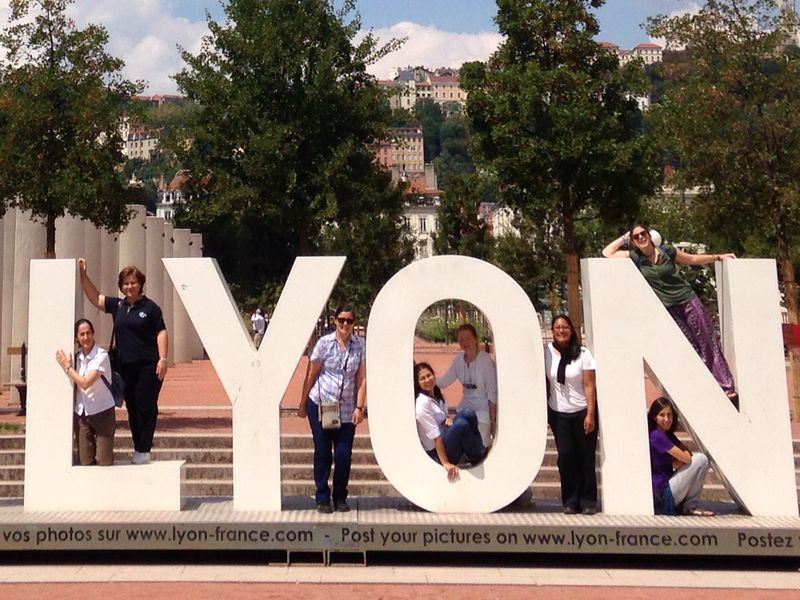JOURNEYING ONWARDS
Personal awareness, sexuality, affectivity,
Ignatian spirituality…
15th October 2014, Rome
LIVING CONSCIOUSLY
PERSONAL GROWTH, SEXUALITY AND AFFECTIVITY
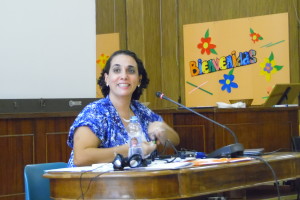 Together with Esther Lucía Awad, a psychologist from Columbia with extensive experience in accompaniment, we spent several days delving deeper into the core value of personal growth and awareness. They were days of intense work as we sought to see how to live in an integrated and balanced way the different dimensions of our being (psychological, transcendental and social).
Together with Esther Lucía Awad, a psychologist from Columbia with extensive experience in accompaniment, we spent several days delving deeper into the core value of personal growth and awareness. They were days of intense work as we sought to see how to live in an integrated and balanced way the different dimensions of our being (psychological, transcendental and social).
Based on the conviction that the woman who opts for religious life must be “adult, autonomous and emotionally responsible”, we were invited to become aware of our own personal processes in order to be better able to accompany other sisters along the way.
With dynamic presentations, clear examples and the awareness and transparency to call things by their name, we began to understand better what is meant by a journey of personal growth and personal integration. It means, as Saint Ignatius would say, “looking after the subject”; to offer appropriate experiences at each stage of formation. We realise that all that one does to achieve inner harmony has a ripple effect in her relationships with others.
As Religious of Jesus and Mary we are called to be with others in community and for the mission. We discovered the need to be aware all that happens in and around us. We long to give ourselves fully to God so that He may become incarnate today through us. We want to be with others, to experience in solitude God indwelling within us; we want to nourish the capacity to recognise and express feelings and to relish the opportunities we have to share life in intimacy with others.
It is important to work on all of the three dimensions of the person in an integral way, placing particular emphasis on each of them during the different stages of initial formation. A further point resonating within us these days is the fact that, in spite of cultural differences, we are all people, we are all women. Even though each region has a different starting point and a different path to follow, by listening and sharing together these days we have discovered keys to continuing this journey of personal growth towards becoming apostles for the mission.
IGNATIAN SPIRITUALITY
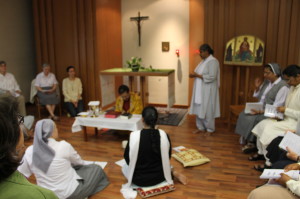 Rolphy Pinto, a Jesuit from India, spent time with us on the 14th of October. We began the day with a simple, homely celebration of the Eucharist. Afterwards he drew us towards the heart of Ignatian spirituality by presenting the various tensions in which it finds itself.
Rolphy Pinto, a Jesuit from India, spent time with us on the 14th of October. We began the day with a simple, homely celebration of the Eucharist. Afterwards he drew us towards the heart of Ignatian spirituality by presenting the various tensions in which it finds itself.
Our lives follow a continual pendular movement between opposite tension points. We are invited to pray as if everything depended on God and to work as if everything depended on us. We are invited to live out our poverty conscious of the requirements of the apostolate and being willing to serve anyone. We are invited to encounter God in the midst of the reality that surrounds us and to involve ourselves fully in that reality without allowing the values of the Gospel to be diluted by cultural values. We are invited to live chastity and friendship and to be friends in the Lord. We are invited to be creative and to take initiative for a radical living out of obedience.
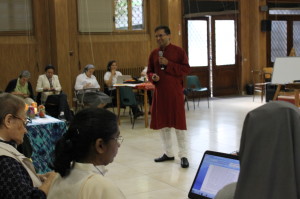 If we wish to navigate between these polar opposites we need to keep our eyes firmly fixed on the horizon, on the fundamental motivation; we need to keep our eyes open and not lose sight of our mission as apostolic religious who live always in an attitude of discernment.
If we wish to navigate between these polar opposites we need to keep our eyes firmly fixed on the horizon, on the fundamental motivation; we need to keep our eyes open and not lose sight of our mission as apostolic religious who live always in an attitude of discernment.
Would that every religious were strongly rooted in Christ allowing her to be ever available for mission: this is what Claudine longed for, with the often misunderstood “vow of stability”.
The centrality of the mission, the experience of the Spiritual Exercises as the dynamic of our daily life, spiritual conversion, availability, discernment and accompaniment are other aspects of Ignatian spirituality that our present since the very origins of our tradition and which we recovered again over the past few days.
We are very grateful to Teresa de Jesús RJM and Rosemary Mangan RJM who provided us with interesting historical background to many of these aspects and who have helped us to appreciate the threads of Ignatian spirituality present in our Congregation since the very beginning.


